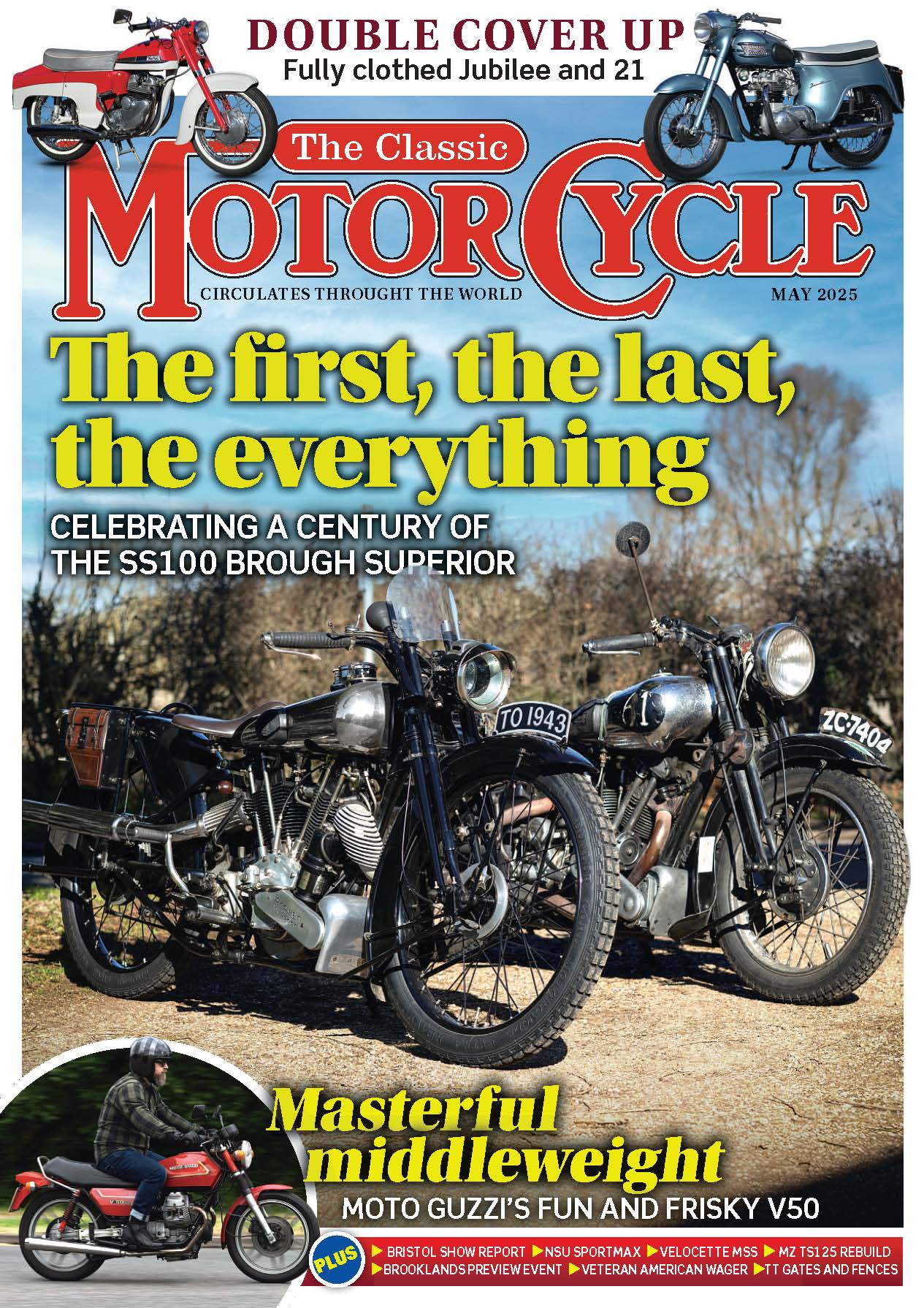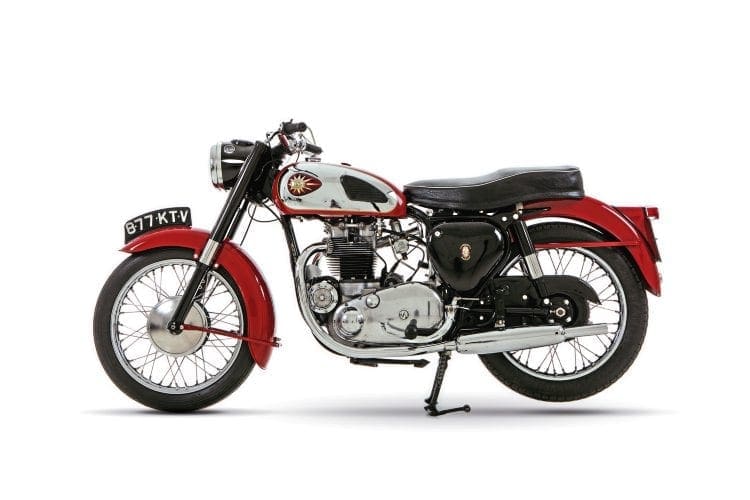
Words: MICHAEL BARRACLOUGH Photography: GARY CHAPMAN
When John Foster first laid eyes on this BSA Super Rocket he was actually in the market for a Velocette, but the stunning pre-unit Beezer was enough to sway John’s affections on the spot.
The 650cc BSA A10 twins were praised for their reliability and handsome appearance, and this 1961 Super Rocket belonging to John Foster – resplendent in that classic red and chrome livery – is a fine example of why these machines received such praise.
As mentioned above, John was more interested in buying a Velocette when he first clapped eyes on this BSA, but he decided there and then that this machine possessed that ‘je ne sais quoi’, and was very keen to add it to his stable.
Enjoy more Classic MotorCycle reading in the monthly magazine.
Click here to subscribe & save.
The story goes that John, who had been on the hunt for a Velo, was visiting a dealer that had a suitable machine in stock.
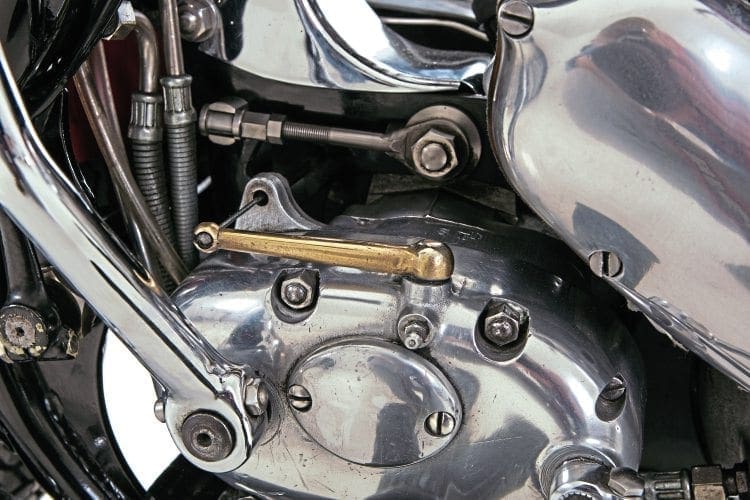
John visited this dealer with a friend, and was perusing the selection of machines (which included the Velo) when his friend called out: “John, I’ve found it.” John was led over to the Super Rocket. The machine was £1000 more expensive than the Velocette, but upon seeing the red Beezer John decided that this machine was worth the extra expenditure.
This is a ’61 Super Rocket, which marks it as one of the last pre-unit BSAs. The Super Rocket was first introduced into the BSA roster in time for the 1958 season, and it came in as a sporty model that replaced the Road Rocket which, in turn, was derived from the A10 Golden Flash.
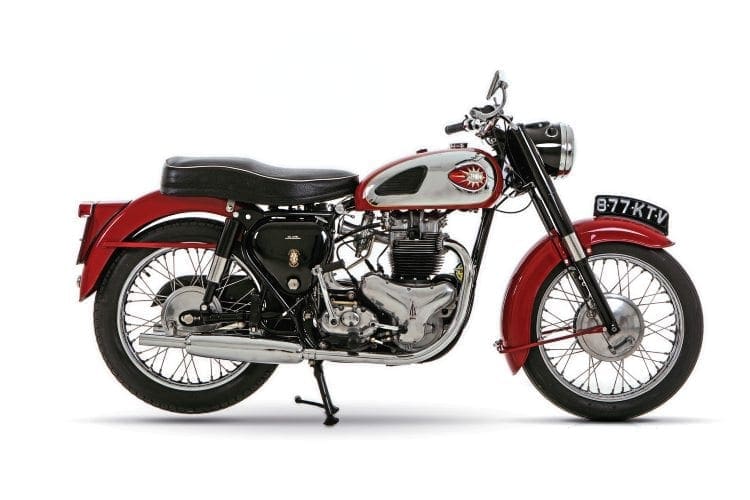

The Super Rocket produced 42bhp and had a compression ratio of 8.3:1. The cylinder head was a new and improved fitment, and the carburettor – which had been an Amal TT carb – was now a large-bore Amal Monobloc.
The Super Rocket bore a distinct resemblance to the old A10, but the chrome mudguards and separate headlamp of the Road Rocket were eschewed in favour of the sports guards that were found on the Shooting Star, and the all-encompassing 1958 headlamp nacelle replaced the separate headlamp and speedo.
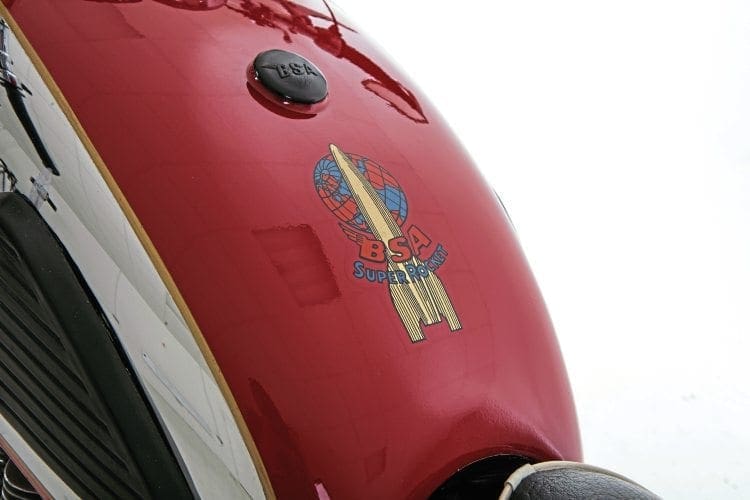
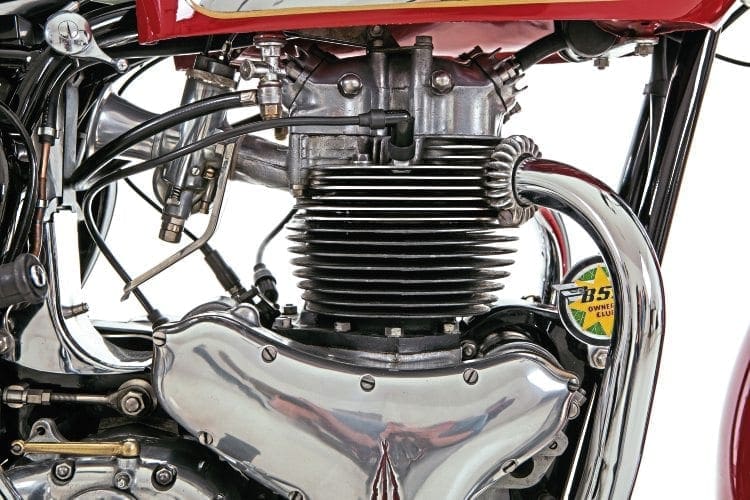
Apart from the adoption of cigar-shaped silencers, a stiffer, higher-lift camshaft and some minor amendments to the lubrication system and electrics, the Super Rocket never changed too radically.
For 1961, the year of origin of this particular machine, there were no changes, and the days of the pre-unit twin were shuffling irrevocably to a close.
The motorcycle market was shrinking and cars were becoming increasingly popular, and these issues – exacerbated by several other factors including the short supply of Lucas magnetos – ultimately led to the A65 unit twins and the beginning of BSA’s final chapter.
The A7 and A10 machines were ready to be axed in 1962 when the first unit twins appeared, but the Super Rocket, with new silencers and modified gears and brakes, managed to cling on well into 1963 before BSA finally discontinued it.
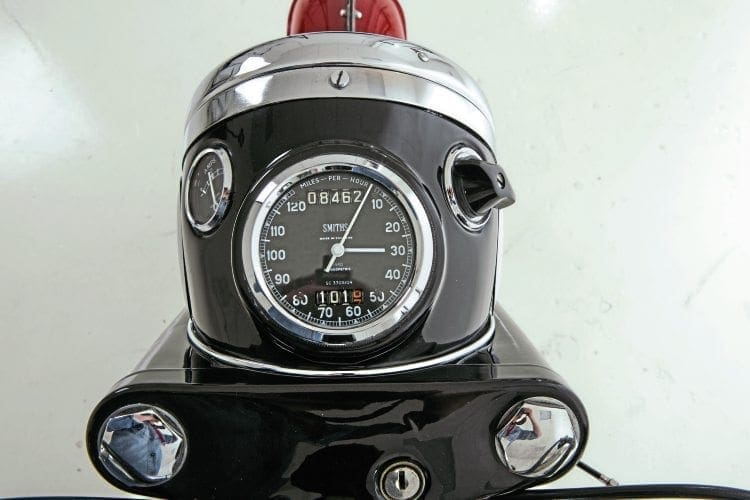
Finer details of the 1961 BSA Super Rocket
- ENGINE: 646cc four-stroke ohv parallel twin
- BORE X STROKE: 70mm x 84mm
- COMPRESSION RATIO: 8.3:1
- CARBURETTOR: Amal Monobloc
- POWER OUTPUT: 42bhp
- GEARBOX: BSA four-speed
- SUSPENSION: Telescopic forks in front, two Girling units at the rear
- BRAKES: 8in front, 7in rear
- TANK CAPACITY: Four gallons
- IGNITION: Lucas K2F magneto
Advert
 Enjoy more The Classic MotorCycle reading in the monthly magazine. Click here to subscribe.
Enjoy more The Classic MotorCycle reading in the monthly magazine. Click here to subscribe.


